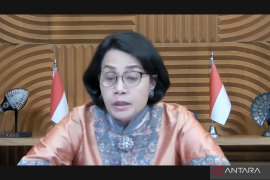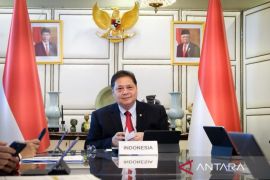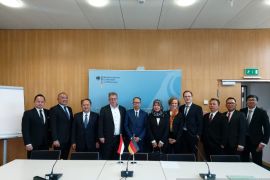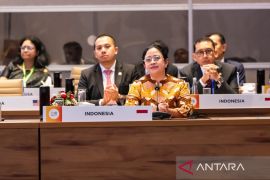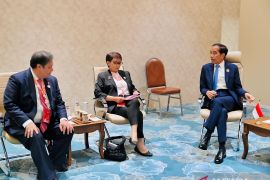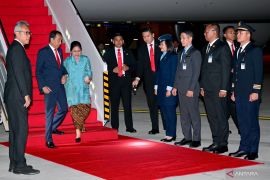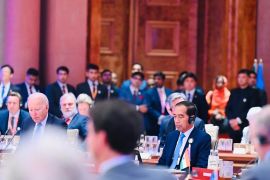"Over and above the `critical measures" taken in the midst of the recent financial turmoil, what is needed is an ambitious rethink of all the rules, agreements and international institutions that govern the determination of exchange rates, international liquidity supply and international capital flows," said Christian de Boissieu, chairman of the French Council for Economic Analysts who is also president of the Economic, Social and Environmental Council in a meeting with some foreign journalists here on Thursday.
According to him, the reason why the international monetary system should be reformed was the fact that it was a non-system, born out of the collapse of the Bretton Woods System, and because it seemed to encourage a number of imbalances: excessive exchange rate volatality, sudden stops in private capital flows, persistent external imbalances in the reverse (such a net capital flows tending to go from emerging markets to rich countries).
In addition, the reforms also covered asymmetrical adjustment mechanisms between borrowing countries and lending countries, similar asymmetrical adjustments between the United States with its dollar that remains the main currency in the current system and the rest of the world, and excessive currency reserve accumulation by emerging market countries.
Admitedly, there are some disagreements about the link between these imbalances and the recent financial crisis. However, it is clear that the current non-system does not facilitate the necessary adjustment.
The non-system also seems out of step with the global economy, whose boundaries have been significantly enlarged by the growth of the leading emerging markets. The dollar`s persistent dominance makes the current system a unpolar one, in contrast with the tripolar global economy in which North America is no more important than Europe or Asia.
As a result, an inevitable transition is playing out and in some respects has already begun towards a more `multipolar` monetary system whose mainstays could be the dollar, the euro and the yuan once the Chinese currency becomes fully convertible.
The advantages and disadvantages of a multipolar international monetary system, according to Agnes Benassy Quere and Jean Pisani-Ferry, economists at the Council for Economic Analysis, could prove to be the best or the worst of the system, depending on the degree of exchange rate flexibility it provided for and the extent of multilateral coordination.
The transition could indeed be painful if carried out against a backdrop of a currency war or restrictions on capital flows. Therefore, the international community should start preparing for this transition and establish the condition to ensure it is painless, by encouraging exchange rate flexibility and the internationalization of the Chinese currency and possible the euro, Agnes opined.
To achieve this, Agnes recommended extending the IMF`s mandate to supervise the financial account, to set up a code of conduct governing currency interventions and capital controls, to reinforce procedures for supplying liquidity in the event of a crisis in addition to setting up a coordinated central bank framework to manage global liquidity. Such conditions would reap the benefits of the gradual move toward a multipolar system.
However, Agnes Benassy-Quere and Jean Pisani Ferry expected the transaction towards a multipolar system to bring about improvements. In terms of economic efficiency, by encouraging the diversification of reserves, a multipolar system should limit the accumulation of reserves and enhances the circulation of capital both between regional blocks and within them.
Greater substitutability for the key currencies should also reduce currency imbalances in an environment of flexible exchange rates. This should mitigate the asymmetrical nature of adjustments, improving the fairness of the global monetary system.
In terms of stability, Jean Pisani Ferry stressed that short-term exchange rate volatility would probably rise owning to greater capital mobility, but in the medium term, the multipolar system could reduce the Triffin dilemma by sharing the problem between key currencies.
In short, the transition from hegemonic system to a multipolar system would bring about improvements.But further improvements still need to be made to the structures that provide liquidity in the event of a crisis over and above existing facilities.
This should take the form of multilateral agreements that complement regional and bilateral accords. A structure for managing global liquidity is also needed.
In this respect, Agnes Benassy-Quere and Jean Pisani Ferry supported the proposed extension and relaxation of the Special Drawing Right (SDR) which were created in 1969 with the purpose of ensuring multilateral international liquidity management. This would require reform of the International Monetary Fund's statutes and close cooperation between the Fund and the central banks that isssue currencies in the SDR basket, which could be extended to include the yuan.
Furthermore, Christian de Boissieu said, the member countries of G20 needed to consider how the international monetary system functions or malfunctions during a systemic crisis like the one France experienced recently.
In his opinion, the major weaknesses of the current system lies in the absence of systematic mechanisms that ensure a coordinated supply of sufficient liquidity. This insufficiency exacerbates countries` use of self-insurance policies, the accumulation of vast currency reserves which are optimal at an individual level but are socially ineffective.
It was for that purpose, he said, several specific proposals aimed at improving the global liquidity coverage needed to deal with individual or systemic crisis which would reduce demand for currency reserves.
It could be done in the form of encouraging the development of alternatives to US treasury bills as the preferred reserve asset in order to accelerate the unavoidable transition to a multipolar system, perpetuating the bilateral agreements between the central banks to temporarily supply liquidity (swaps) which were successfully activated during the recent crisis.
Reinforcing and enlarging the IMF facilities such flexible credit line (FCL), precautionary credit line (PCL) and the global stabilization mechanism (GSM) and extending IMF financing mechanism in addition to establishing pooling facilities (for deposing currency reserves) with the IMF which would provide better protection than self-insurance to participating countries are necessarily done, Christian said.
However, according to him, one issue during the G20 summit should not overshadow another. Since 2008, the G20 has made a number of recommendations for improving banking and financial regulations in the wake of the global crisis.
Reporter: By Eliswan Azly
Editor: Kunto Wibisono
Copyright © ANTARA 2011




